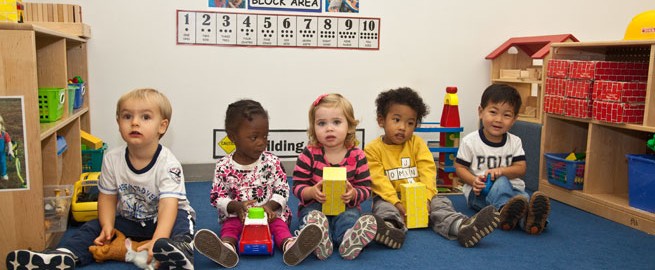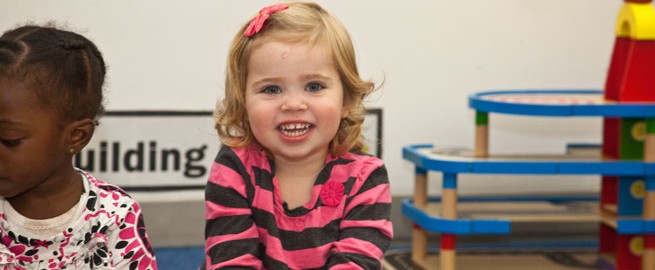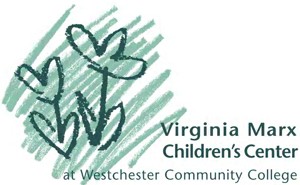Developmental Interaction Approach
The Virginia Marx Children’s Center’s preschool program follows a philosophical guideline known as the Developmental Interaction Approach. This is a concept that revolutionized early childhood education when it was first introduced more than seventy years ago. The basic tenet of the developmental-interaction approach is that the child needs to explore and then express his or her ideas through a variety of channels: imaginative play, discussion, art, or block building.
Play is seen as the child’s work. It is the means by which the child re-examines and re-creates again and again, everything which they have experienced and observed. Play is purposeful, exceedingly important, and serious. Activities chosen by the child are treated as important explorations. The developmental-interaction approach emphasizes the inseparability of the child’s emotional life from his or her intellectual and physical development.
Social interactions are of major importance. We consider it vital that children learn to be aware of their emotions, to identify and talk about them, to express their needs and problems and to become able to negotiate their resolution with other children and care givers. The teacher’s role is to facilitate the formation of friendships by encouraging and helping to negotiate interactions between children.
The preschool program abounds in open-ended material: water, sand, clay, blocks, puzzles, art materials, and the like. Children use the same materials at different ages in increasingly elaborate ways. Free play time is generous, and even planned activities may sometimes give way to the children’s spontaneous interests. Teachers assess children’s growing and changing levels of skill by materials they choose and how they incorporate the materials into their play. Individual portfolios, which document children’s work over time, will be created as a means of assessment.



